How to research keywords, as you read this sentence, someone somewhere is seeing the services you offer, you offer, the products you sell, or the knowledge in your mind.
They are typing words into Google, seeing search results, and just clicking on a search listing.
And they’ve landed on someone else’s website. So sad.
To get that reader to land on your website next time, choose keyphrases carefully and then align your content & pages with those keyphrases.
Ranking in search results is not as hard or mysterious as you’d think. To rank, a page must indicate its relevance and the website itself must be authoritative in the view of search engines.
So, it all begins with the keyword. Keyword research is the first step on the journey to rankings.
However, it’s fun. Keyword research is such as reading the heads of millions of people. This truly amazing the things you can learn within minutes:
What do people call your product or service? Avoid using jargon and begin using top-of-mind phrases. What answers and information does your searcher look for? You align your content marketing with relevant topics and key phrases.
We’ve put our great advice into this guide to help you learn how to research keywords for your digital marketing.
🤨 What is keyword research?
Keyword research is finding and analyzing search terms that people put into search engines to use that data for a specific purpose, often for search engine optimization (SEO) or general marketing.
So, keyword research can uncover queries to target, the fame of these queries, their ranking difficulty, and many more.
🤔 Why is keyword research important?
Keyword research helps you seek your SEO sweet spot — the overlap of keywords that aren’t too hard to rank for and that you can confidently produce great content on. It also identifies the queries that your target audience is searching on Google.
Keyword research “determines who your competitors are and which area of the search landscape you can rank for. Doing keyword research and understanding where your blog or website is — that’s what gives you rankability.”

Searchers keywords to seek solutions when conducting research online, hence if your content successfully gets in front of your audience, you stand to gain more traffic.
So, you should be targeting those searches with content that features those keywords in a meaningful way.
Additionally, the inbound methodology focuses fever on crafting content around what we want to tell people. Instead, we should be crafting content around what people want to discover.
In other words, our users are coming to us for helpful content that provides the answers they’re looking for. However, it all starts with keyword research.
Benefits of Research Keywords
Conducting research keywords has more benefits, the most famous being:
Marketing Trend Insight
Conducting effective research keywords can provide insights into current marketing trends and help you center your content on relevant topics and keywords your users are looking for.
Traffic Growth
When you identify the great-fitting keywords for the content you publish, the top you’ll rank in search engine results – and the more traffic you’ll attract to your site.
Customer Acquisition
If your content meets the needs of your audience, including a strong call-to-action will lead them into the purchase journey from the awareness stage to the point of buy.
By researching keywords for their fame, search volume, and general intent, you can tackle the questions that more people in your users want answers to.
Keywords vs. Topics
Our content has to solve audiences’ problems. If you found your method for this blog post via the search term “SEO keyword strategy,” we must anticipate your questions on this topic.Then answer them.
SEO is evolving at breakneck speed, but research keywords are still foundational to search intent. However, it tells you what topics users care about and how popular those topics are among your audience.
📖Read Also: How to Do SEO for Website: 12 Tips Improve Website!
🙄Elements of Research Keywords
There are three core elements to conducting research keywords.
1. Relevance
The Google ranks content for relevance.
This is where the place of search intent comes in. Your content will only rank for a keyword if it meets the visitors’ needs.
In addition, your content must be a great resource for the query — Google won’t rank your content as highly if it doesn’t provide more value than its competitors.
If you’re beginning an SEO business specializing in small businesses, you might assume that “SEO tips for small businesses” would be the most relevant keyword. But take a look at the Ubbersuggest keyword research dashboard:
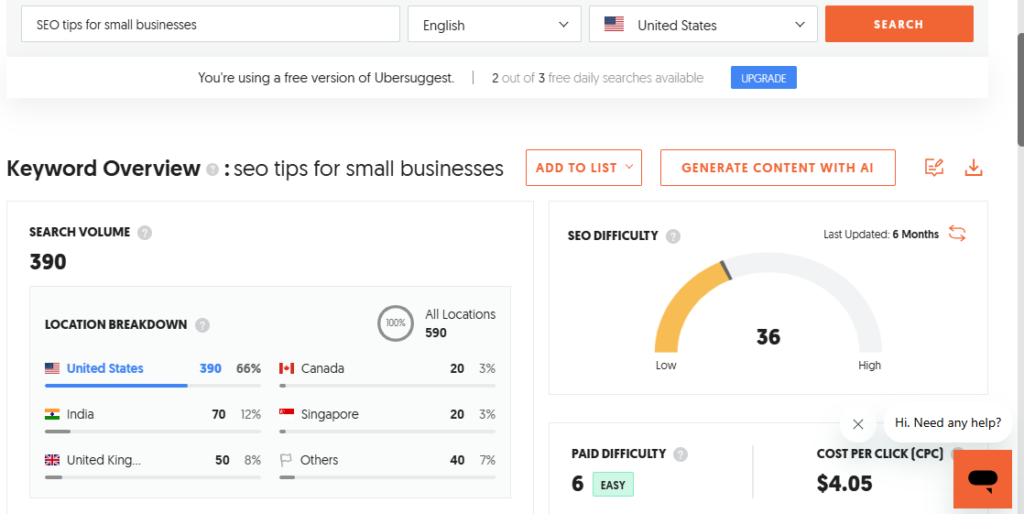
“SEO tips for small businesses” has an MSV of 390 and a keyword difficulty is 36.
2. Authority
Google places a lot of importance on sources it deems authoritative.
You can become an authoritative source by enriching your site with helpful, informative, valuable blog posts and promoting them to earn social signals and backlinks.

“If you’re not viewed as authoritative in the place, or if a keyword’s SERPs are loaded with heavy sources you can’t compete with you have a less chance of ranking.”
If you want to increase domain authority read this post. ⏬
📖 How to Increase Domain Authority: 7 Practical Steps!
3. Volume
You might rank on the first page for a specific keyword, but if no one ever searches for it, you won’t view any traffic. It’s such as setting up a shop in a ghost town.
Volume is measured by MSV (monthly search volume), which means the number of times the keyword is searched by all people every month.
Compare Ubersuggest results for “SEO tips for small businesses”:

🎯 How to Research Keywords
I’ll be going to lay out a keyword research process you can follow to help you develop a list of terms you should be targeting.
With that method, you can establish and execute a strong keyword strategy that helps you get found for the search terms you care about.
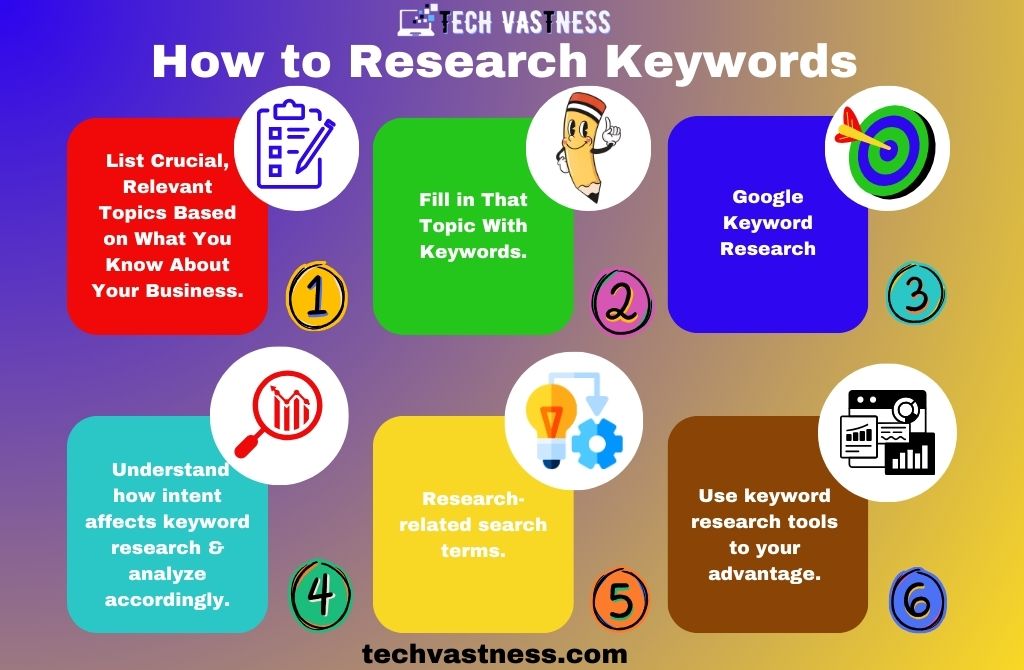
1️⃣ List Crucial, Relevant Topics Based on What You Know About Your Business.
To kick this off, consider the topics you want to rank for in terms of generic buckets.
You’ll create 5 to 10 topic buckets that are necessary for your business, and later in the process, you’ll use those topic buckets to help you create a few specific keywords.
If you’re a blogger, these are probably the topics you blog about frequently. Or perhaps they’re the topics that come up the many in sales conversations.
Put yourself in the shoes of the purchase person. What types of topics would your audience search that you’d want your business to get found for?

Techvastness, for example, might general topic list like:
- “SEO” (165k)
- “blogging” (6.6k)
- “social media marketing” (40.5k)
- “email marketing” (33.1k)
- “digital marketing” (165k)
- “lead generation” (18.1k)
- “inbound marketing” (12.1k)
- “marketing analytics” (6.6k)
- “marketing automation” (14.8k)
- “ai marketing” (4.4k)
The number in parentheses is the MSV, according to Semrush.
This data access you to gauge how crucial these topics are to your users and how many different sub-topics you need to build content on to be successful with this keyword.
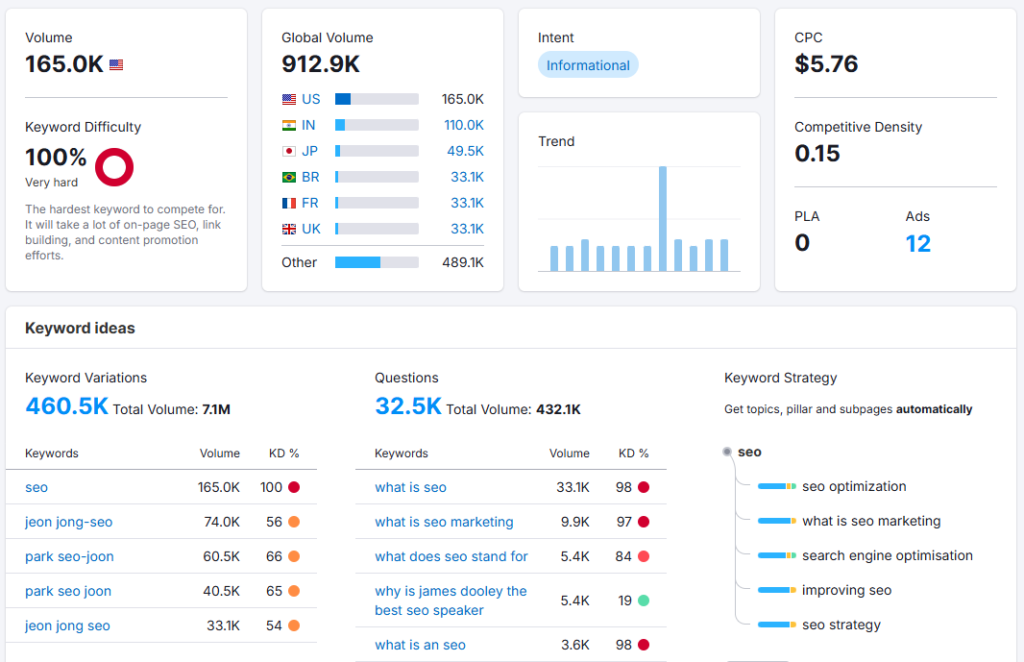
2️⃣ Fill in That Topic With Keywords.
Now how to research keywords you have some topic you want to focus on, and it’s time to identify a few keywords that fall into those.
These are keyword phrases you think are crucial to rank for in the SERPs (search engine result pages) as your target clients are probably conducting searches for those specific terms.
For instance, I took that end topic for an inbound marketing software company – “marketing automation” – I would brainstorm a few keyword phrases I think visitors would type in similar to that topic.
Those might involve:
- AI marketing tools
- marketing automation tools
- how to use marketing automation software
- what is marketing automation?
- how do tell if I must marketing automation software?
- lead nurturing
- email marketing automation
- top automation tools
- best automation tools
The main point of this step isn’t to come up with your last list of keyword phrases, you just want a brainstorm phrases you think potential clients might use to search for content related to that particular topic.
We’ll little the lists down later so you don’t have something too unwieldy.
You keep in mind that Google encrypts more keywords each day. Hence, another method to generate keyword ideas is to determine which keywords already bring searchers to your website.
To do this, you’ll need website analytics software such as Google Analytics, and Google Search Console, which are available in the Traffic Analytics tool.
Drill down into your site’s traffic sources and sift via your organic search traffic to identify the keywords the audience uses to arrive at your website.
Repeat this exercise for as many topics as you have.
😊 Remember, if you’re having trouble brainstorming with relevant search terms, you can always head on over to your clients-facing colleagues in service or sales. Ask them what types of terms their prospects or clients have questions about.
Those are often the best starting points for research keywords.
📖Read Also: How to Increase Organic Traffic? 16 Killer Success Ways!
3️⃣ Google Keyword Research
Google search itself is the best way to check. You type the word you’re considering, then hold off hitting the return key. View the keyword suggestions. If Google suggests it, people are searching for it.
Google search results are another how to research keyword sources of related keywords. Even before you finish typing in the phrase, Google may suggest others. View those suggested phrases and the “Related Searches” links at the bottom of the page. View for question & answer boxes. Do you have any ideas?

Are there a lot of search engine result page (SERP) features pushing down the organic rankings?
A few search results pages are crowded with ads, answer boxes, images, and other features. These push down the high-ranking pages, reducing the likelihood that users will click on your page even if you do rank. It is the biggest trend in SEO.
Every SERP feature reduces click-through rates for organic search rankings, thereby lessening the traffic potential of a given phrase. If you view a lot of them, you’ve discovered that Google itself is your competitor and the size of the price is smaller.
What formats for content are ranked?
Are the search results filled with products? Videos? Images? News?
SERP features are clued into the content formats that Google has decided are great suited to meet the information needs of the visitors. They can guide decisions about target keyword phrases and content formats.
If you view videos in search results, you should build a video, along with a continued webpage, to target this phrase.
Do you view a map?
If you view a map with a list of businesses below it (known as “local 3-pack”) you are considering a geographically specific phrase. You must focus on local SEO to compare for this key phrase. Local SEO is different from organic SEO. Those are sites that rank under the map, they are local listings.
Improve the ranking of this listing in the local search results, ensure that your business information is up to date in Google My Business, within all of the internet Yellow Pages sites (IYPs), and everywhere else where your business name, mobile number (NAP), and address appears. An example of your NAP is called a “citation.”
😊 When a business has more citations with some inconsistencies, Google has much evidence that there is a relevant business in that location. So, Google is likely to display that business listing when users in that area search for a related phrase To quickly improve the number and regularity of your citations and improve your local SEO, consider using a service like Moz Local or Whitespark.
📖Read Also: How to Become Freelance Digital Marketer & Find Projects!
4️⃣ Understand how intent affects keyword research & analyze accordingly.
The next step is how to research keywords, user intent is now one of the most pivotal factors in your ability to rank well on search engines such as Google.
That means it’s important that your web page addresses the problem a user wants to solve rather than simply involving the keyword the visitor used.
Hence, how does this affect your research keywords?
It’s attractive to take keywords at face value, but they can have multiple meanings.
However, as the intent behind a search is so crucial to your ranking potential, you must be extra careful about how you interpret the keywords you target.
Let’s say you’re researching the keyword “what is SEO” for a post you want to create. “SEO” can mean an SEO post or the search engine optimization itself, and the user’s intent behind that keyword will influence the direction of your content.
Does the user want to learn how to start SEO on an individual blog post? or do they want to know how to start SEO a website?
If your content strategy only targets users interested in the latter, you must determine the keyword’s intent before using it.
To verify a person’s intent, it’s a great idea to simply enter this keyword into a search engine yourself and view what types of results come up. I did a quick search for “what is SEO,” and it looks like most people are searching for info on how does it works with SEO, not an individual SEO post:

Ensure the type of content Google shows relates to your intention for that keyword.
📖Read Also: How to Make Money Online for Beginners? Top 20 Ways!
5️⃣ Research-related search terms.
We are learning how to research keywords. It’s a creative step you may have thought of when doing keyword research.If not it’s best way to fill out those lists.
If you’re struggling to think of many keywords users might be searching about a specific topic, take a look at the related search terms that appear when you plug a keyword into Google.
I am keyword searched Google for “How to do SEO for website“. At the bottom of the Google first page, I can see that people are also searching specifically for how to do SEO for website for free.
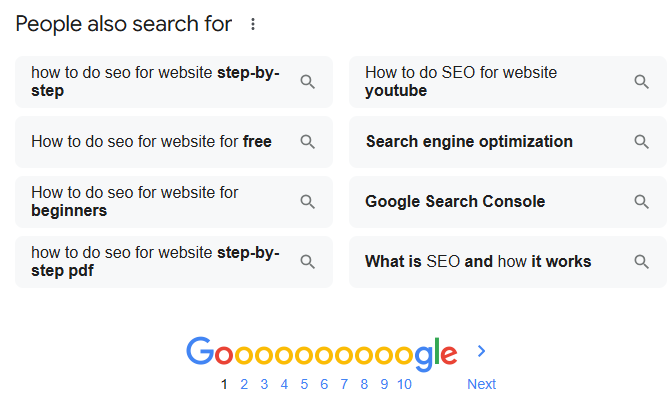
These keywords spark ideas for other keywords you may take into consideration.
😊 Want a bonus tip? Now, type in a few of those related search terms and look at their related search terms.
6️⃣Use keyword research tools to your advantage.
Keyword research & SEO tools can help you brainstorm more keyword ideas based on exact and keyphrase-match keywords based on the ideas you’ve generated up to its points.
How to find keyword search volume, some of the most popular ones include:
️#️⃣1. SEMrush Keyword Magic
Semrush tool is one of the most comprehensive SEO companies out there, hence I wasn’t surprised to learn that their keyword magic tool was also comprehensive.
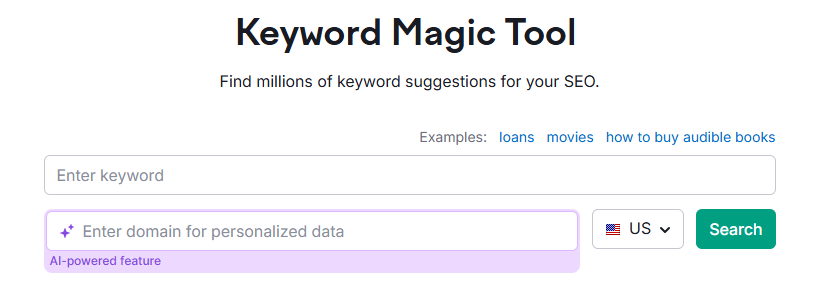
While you do must set up an account, it’s free. You can type in your keyword, get a list of similar keywords, & sort based on how specific you must your results to be.
📖Read Also: Different Types of Keyword in SEO With Example!
️#️⃣2. Ahrefs Webmaster Tools
Some of the best SEO reports and keyword research come from SEO experts using Ahrefs Keywords Explorer.

Their webmaster tools offer plenty of details about any verified domains you own if you’re looking for an overview of organic keywords and backlinks.
#️⃣3. SE Ranking
I found SE Ranking was not quite as user-friendly to deep into as a few of the other options.
I typed in my keyword “research keyword”, and I was prompted to set up a free 7-day trial, and it immediately asked for the domain I wanted to track.
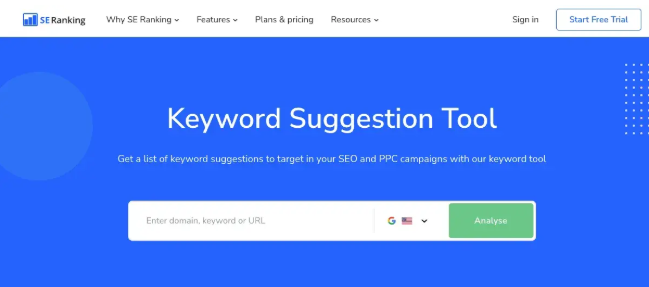
While it gave me a few best intro data, I had to do a little digging to get to the keyword research and keyword suggestion tools. Although, when I found them, the resulting data was comprehensive and gave me lots of the best ideas.
It’s free of cost and doesn’t require setting up an account.
#️⃣4. Ubersuggest
I’ve been a fan of Ubersuggest for quite a long time. You get up to 3 free searches a day, and it’s so simple to use.

In addition to finding out specific keyword performance, you can seek related keywords & do a quick reverse search to seek out what your site is already ranking for.
It’s one of the simplest, most comprehensive free options if you don’t mind the limit of the free searches.
📖Read Also: All SEO Types (Search Engine Optimization): Guide!
#️⃣5. Free Keyword Research Tool
I found Ryrob’s keyword research tool simple to use. When I plugged “research keyword” into the “Explorer” place as my keyword, it gave me several related keywords that could be amazing blog topics.

Then, when I shifted to the “Ideas” tab, it gave me other keyword ideas that are more likely to be specific search terms that I might want to involve in future posts on keyword research.
#️⃣6. Google Keyword Planner
Google’s tools are always golden. They’re free and it’s always best to get the info straight from the tiger’s mouth. Once you sign in with your Google account, you can search for keyword ideas based on the keyword or your site.
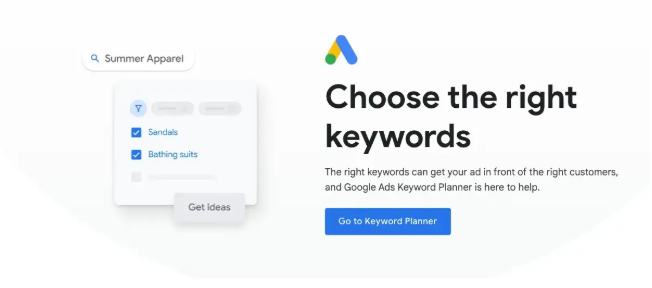
#️⃣7. Keywords Everywhere
Keywords Everywhere comes highly recommended, but it’s not a free-of-cost tool.

It’s a browser extension and it takes a small more setup than browser-based options. The low price tier, “bronze,” is $2.25/ monthly and limits you to 100k keywrds annually.
Since it’s a browser extension, each time I do a Google search, I get data about related keywords and similar searches, which gives me lots of ideas for new articles.
For the price & the detail, it’s one of my best tools.
#️⃣8. KeywordTool.io
You use keywordTool.io is exactly what they promise in the title. When I typed in “research keywords,” I got a list of 500 keywords ideas.

However, I only view search volume, trend, CPC, and competition for the first 5, I can view all of the keywords, which provides an amazing search beginning point.
#️⃣9. KWFinder
KWFinder is an easy tool. While I quickly found that an account is a must to get started, it’s free and so easy to deep in. I was able to quickly begin finding the top keywords.

#️⃣10. SearchVolume.io
I place a handful of keywords into SearchVolume.io, after doing a just “Are you a human?” check, the month search volume immediately pops out.

Quick cross-comparison with other tools displayed that the data was consistent with other platforms.
#️⃣11. Rank TrackerRank
Tracker by SEO PowerSuite is an amazing tool for monitoring SERP data and doing keyword research.
There are a lot of best features, but Rank Tracker works great as a tool to rank relevant keywords, identify keyword gaps, and autocomplete phrases on multiple search engine tools.
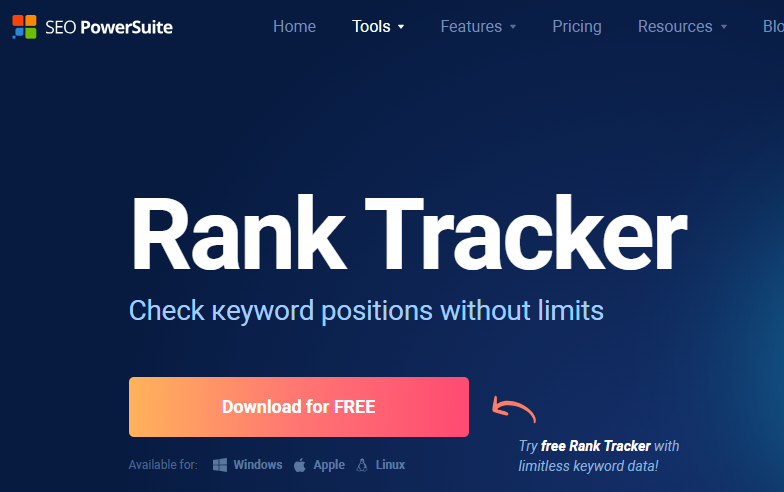
Rank Tracker allows you to view all the key phrases a particular domain ranks for, along with search volumes and keyword difficulty.
Rank Tracker also integrates with Google Search Console and Keyword Planner, providing a free-of-cost version for unlimited testing.
📖Read Also: How to Become Digital Marketer? Step-By-Step Guide!
😎 How to Find & Choose Keywords for Your Website
How to keyword search a website? Once you have an idea of the keywords that you want to rank for, it’s time to refine your list based on the great ones for your strategy. Here’s how below.
✅1. Use Google Keyword Planner to cut down your keyword list.
Google’s Keyword Planner, you can get a search volume estimate for keywords you’re thinking of. Then, take the information you experience from Keyword Planner and use Google Trends to fill in a few blanks.

Use the Keyword Planner to flag any terms on your list that have too short (or too much) search volume and don’t help you maintain a healthy mix.
So, before you delete anything, check out their trend history and projections in Google Trends. You can view whether you should invest in a few low-volume terms now so you can reap the benefits later.
Perhaps you’re just looking at a list of terms that is method too unwieldy, and you have to fever it down somehow. Google Trends can help you determine which terms are trending upward and are worth more of your target.
📖Read Also: What is keyword Stuffing in SEO? Types & How to Avoid!
✅2. Low-hanging fruit should be prioritized.
That is, prioritize keywords that you have an opportunity to rank for based on your website’s authority.
Big companies typically go after high search volume keywords, and since these brands are better established already, so Google typically rewards them with authority over many topics.
You can also focus on keywords that have less competition. Keywords that don’t already have different content battling for the top rank can afford you the spot by default – if there’s no one else trying to claim it.
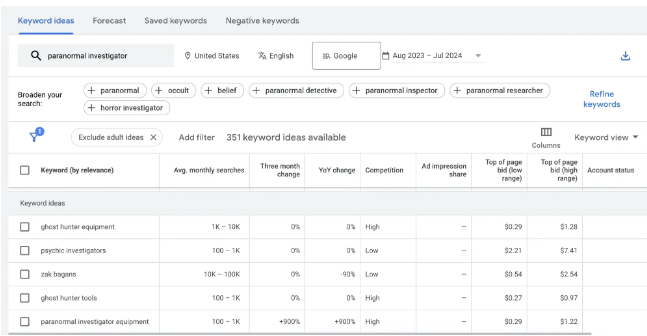
✅3. Check the monthly search volume for keywords you’ve chosen.
You want to write an article around what people want to discover, and checking monthly search volume can help you do just that. Per-month search volume is the number of times a search query or keyword is entered into search engines monthly.
Here are the results from Semrush on “SEO,” which has a monthly search volume 164k:

Tools such as searchvoume.io or Google Trends can help you seek the most searched keywords for related keyword clusters for free.
✅4. Factor in SERP features as you choose keywords.
These are several SERP feature snippets that Google will highlight if used the right way.
A simple way to seek out about them is to look up keywords and view what the first result looks like.
But for a quick overview of the types of SERP featured snippets, we’ll summarize the more common people here – you can read about all twenty-two of them on Google.
Image Packs
lmage packs are search results shown as a horizontal row of images that appear in an organic position. If there’s and pic pack, you should write an image-heavy article to win placement in it.
For example, here’s the image pack for “hair transplant”.

AI Overviews
A relative addition to Google’s rich results, AI Overviews provides an AI-written summary for a certain % of searches. (The percentage has changed a few times to meet the demand for accuracy.)

Paragraph Snippets
Featured snippets, or paragraph snippets, are small snippets of text that appear at the top of Google search results for quick answers to common search queries. I asked Google, “Where do tigers live?” and it returned this featured snippet:

Understanding the people’s intent and providing succinct answers can help you win a featured snippet.
List Snippets
List snippets, or listicles, are snippets made for content outlining steps to do something from beginning to finish — often for “How-to” searches. Writing content with direct, clear instructions and formatting can assist in winning this placement.

Video Snippets
Video snippets are small videos that Google shows at the top of a SERP in place of text-based featured snippets.

Posting a video on YouTube and your website can help you win this placement if you’re tagged in the targeted keywords users are searching for.
✅5. Check for a mix of head terms & long-tail keywords.
Head terms are keywords that are generally shorter and more generic — typically just 1 to 3 words in length.
How to research keywords with long-tail keywords, on the other hand, are longer keywords usually containing 3 or more words.
It’s crucial to check that you have a mix of head terms and long-tail terms to build a well-balanced keyword strategy with long-term goals and short-term wins.
That’s as head terms are generally searched more frequently, making them often (not always, but often) more competitive and hard to rank for than long-tail terms.
Think about it: Without even looking up search volume or difficulty, which of the below terms do you think would be hard to rank for?
- SEO
While head terms generally boast the most search volume, the traffic you’ll get from “how to write blog post fast” will usually be more desirable.
That’s because someone who using a main query is probably a more qualified user for your product or service (presuming you’re in the blogging space) than the person with a more generic search query.
As long-tail keywords tend to be more specific, it’s usually easy to tell what searchers who search for those keywords are looking for. Someone searching for the head term “SEO,” on the other hand, could be motivated by reasons that aren’t related to your business.
Short-tail keywords can make it difficult to rank, especially if you are a new blogger and you don’t have that domain authority quite yet.
Target those long-tail keywords, as a lot of times the competition is less on them. So, it allows you to really develop a niche and allows you to rank.
Hence check your keywords lists for a healthy mix of head terms and long-tail keywords. You want a few quick wins that long-tail keywords will afford you, but you should also try to chip away at more hard-head terms over the long haul.
📖Read Also: How to Make Money in Digital Marketing? 13 Greatest Ways!
✅6. See how competitors are ranking for these keywords.
We have learned how to research keywords and the step is, that just as your competitor is doing something doesn’t mean you must. The same goes for keywords. Just as a keyword is crucial to your competitor doesn’t mean it’s crucial to you.
However, understanding what keywords your competitors are trying to rank for is the best way to help you give your list of keywords another evaluation.
So, if your competitor is ranking for some keywords that are also on your list, it makes sense to work on improving your ranking for those.
You don’t ignore the ones your competitors don’t seem to care about – it could the best opportunity to own market share on other crucial tems.
😊 Understanding the balance of terms might be a short more difficult. You remember the goal is to end up with a list of keywords that provides a few quick wins but also helps you make progress toward larger, more challenging SEO goals.
Here’s a quick method to get a sense of other terms that your competitors rank for: Manually search for keywords in an incognito browser and view what position your competitors are in.
🚀Best Keywords for SEO
You understand that there are no “best” keywords, just those that are highly searched by your users. With this in mind, it’s up to you to create a strategy that will help you rank pages and drive more traffic.
The best keywords for your SEO strategy will account for relevance, volume & authority. You want to seek highly searched keywords that you can reasonably compete for based on your competition and your ability to produce amazing content on these keywords.
📖Read Also: What 15 Types of Backlinks in SEO are Needed Right Now!
🤗You’re Ready to Build Out Your Content
You now have a list of strong keywords that will help you focus on the right topics for your business and get you a few short-term & long g-term gains.
Ensure to re-evaluate these keywords every few months – once a quarter is a good benchmark, but a few businesses such as to do it even more often than that.
As you gain even more authority in the SERPs, you’ll seek you include more and more keywords to your list.
😊 Remember that building up a strong SEO strategy takes some time. It takes a long time to view results when you’re first creating that strategy. Understand that it takes time. Now, we have learned deeply how to research keywords.⭐
📖Read More Blogs:

